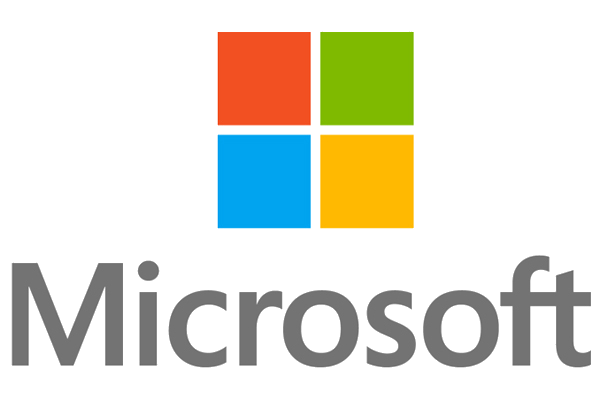Microsoft, AWS and Google subject matter experts discuss Generative AI - including LLM Model Comparisons, GenAI Cost Management, RAG Data Architecture, NIST AI Risk Management Framework, AI Chipsets, Responsible AI - plus CyberSecurity, Hybrid/Multi Cloud/AI Platforms, Data Analytics and more.
Angelbeat provides a unique opportunity to directly interact with, ask questions to, plus learn from, the world’s three leading Cloud/AI firms, in one focused program.
Scroll down to see the detailed agenda and speakers. Click on the name to view their Linkedin profile, and session title for additional information. CPE credit hours are provided.
While the event is designed for on-site Charlotte attendees, every presentation is also Livestreamed via Zoom, like a regular webinar, for remote/online viewers. Please use your Angelbeat account - created on the secure Memberspace platform - to register to attend by clicking the green button. You are automatically signed up for the Zoom LiveStream, and can then request to attend in person (limited to 40 individuals), which includes lunch plus priority for scheduling one-on-one technical briefings with AWS, Microsoft or Google.
Date/Time: November 13, 9 am ET until Noon
Speakers, Topics, Agenda
9 am ET Ron Gerber, CEO Angelbeat
NIST AI Risk Management Framework (RMF)
Ron’s summarizes the day’s agenda, plus outlines the importance of creating an AI Risk Management Framework (RMF) based on NIST standards.
NIST recently released NIST-AI-600-1, Artificial Intelligence Risk Management Framework: Generative Artificial Intelligence Profile. Developed in part to fulfill a Presidential Executive Order, the profile can help organizations identify unique risks posed by generative AI and proposes actions for generative AI risk management that best aligns with their goals and priorities.
9:20 Thaddeus Worsnop, Solutions Architect, AWS
Supercharging LLMs: Delivering Value with RAG and Bedrock Agents
Large language models (LLMs) have demonstrated remarkable abilities in natural language understanding and generation. However, LLMs are limited by the knowledge contained in their static training data. Retrieval-augmented generation (RAG) is a technique that enables LLMs to access and incorporate domain specific data or proprietary information securely from various knowledge sources, significantly extending their capabilities. RAG retrieves relevant passages from a knowledge base and provides them as additional context to the LLM, allowing it to generate outputs grounded in current, factual information.
Amazon Bedrock agents further enhance RAG by orchestrating multistep workflows involving foundation models, knowledge bases, and API calls. Agents can break down complex user queries, retrieve pertinent data via RAG, reason over the retrieved information, and generate comprehensive responses - all without manual engineering. The agent traces its reasoning steps, enabling developers to refine its behavior.
This session will explore how RAG and Bedrock agents can be leveraged to supercharge LLMs for knowledge-intensive applications. We will examine the key components of a RAG architecture, best practices for constructing knowledge bases, and methods for optimizing retrieval. Example applications in question answering, task completion, and open-ended dialogue will demonstrate the power of retrieval augmentation. Finally, we will discuss practical considerations and future directions for RAG and agent-based systems.
By harnessing external knowledge through RAG and Bedrock agents, we can push the boundaries of what LLMs can achieve, unlocking more capable, reliable, and scalable language technologies. Attendees will leave with an understanding of core RAG concepts and concrete ideas for implementing retrieval augmentation in their own project.
10:00 Brian Vinson, Head of Customer Engineering, Google
Bring generative AI to real-world experiences quickly, efficiently, and responsibly, powered by Google’s most advanced technology and models including Gemini. Here are some of the specific topics to be addressed:
Build Applications and Experiences Powered by Generative AI: With Vertex AI, you can interact with, customize, and embed foundation models into your applications. Access foundation models on Model Garden, tune models via a simple UI on Vertex AI Studio, or use models directly in a data science notebook. Plus, with Vertex AI Agent Builder developers can build and deploy AI agents grounded in their data.
Customize and Deploy Gemini Models to Production in Vertex AI: Gemini, a multimodal model from Google DeepMind, is capable of understanding virtually any input, combining different types of information, and generating almost any output. Prompt and test Gemini in Vertex AI using text, images, video, or code. With Gemini’s advanced reasoning and generation capabilities, developers can try sample prompts for extracting text from images, converting image text to JSON, and even generate answers about uploaded images.
New Generation of AI Assistants for Developers, Google Cloud Services, and Applications: Gemini Code Assist offers AI-powered assistance to help developers build applications with higher velocity, quality, and security in popular code editors like VS Code and JetBrains, and on developer platforms like Firebase. Built with robust enterprise features, it enables organizations to adopt AI assistance at scale while meeting security, privacy, and compliance requirements. Additionally, Gemini for Google Cloud offerings assist users in working and coding more effectively, gaining deeper data insights, navigating security challenges, and more.
10:40 Andrew Thomas, AI/ML Technical Specialist, Microsoft
Microsoft OpenAI Partnership, GenAI Cost Management, LLM Model Comparison, Responsible AI, AI Chipsets
Andrew will discuss these highly relevant GenAI initiatives from Microsoft.
Azure OpenAI Service/Partnership and o1 Models; New Advanced Capabilities and Business Applications:
In September, OpenAI introduced a groundbreaking family of models known as o1, often referred to as "Ph.D. models" due to their advanced capabilities. Now accessible through Azure OpenAI Service, o1 represents a significant leap in artificial intelligence, particularly in reasoning and problem-solving tasks. We've seen the o1 models solve problems like counting the number of R's in the word "strawberry" and logic problems - and learn how can this be applied for businesses.
Strategies and Tactical Plans to Estimate, then Manage Costs for Azure OpenAI Services
Use the Azure Pricing Calculator to estimate costs for OpenAI-powered GenAI applications; for instance, Azure OpenAI base series and Codex series models are charged per 1,000 tokens. Then as you deploy Azure resources, leverage ongoing cost management tools to set budgets and monitor costs.
Empowering Responsible AI Practices
Understand Microsoft’s commitment to Responsible AI and the advancement of AI driven by ethical principles.
Azure AI Chipsets and Infrastructure
Compare different chipset/infrastructure options for Azure ND Series GPU VMs (Nvidia H100, AMD MI300X, Intel Xeon), then decide which platform will deliver and optimize the performance of your most compute-intensive AI workloads.
LLM Comparative Analysis using Model as a Service (MaaS) Architecture
Learn how the Azure AI Inference connector empowers you to experiment with a broader range of models hosted on Azure within your applications. For example, see how you can test/evaluate three models against the widely recognized Measuring Massive Multitask Language Understanding (MMLU) dataset and produce benchmarking results.













